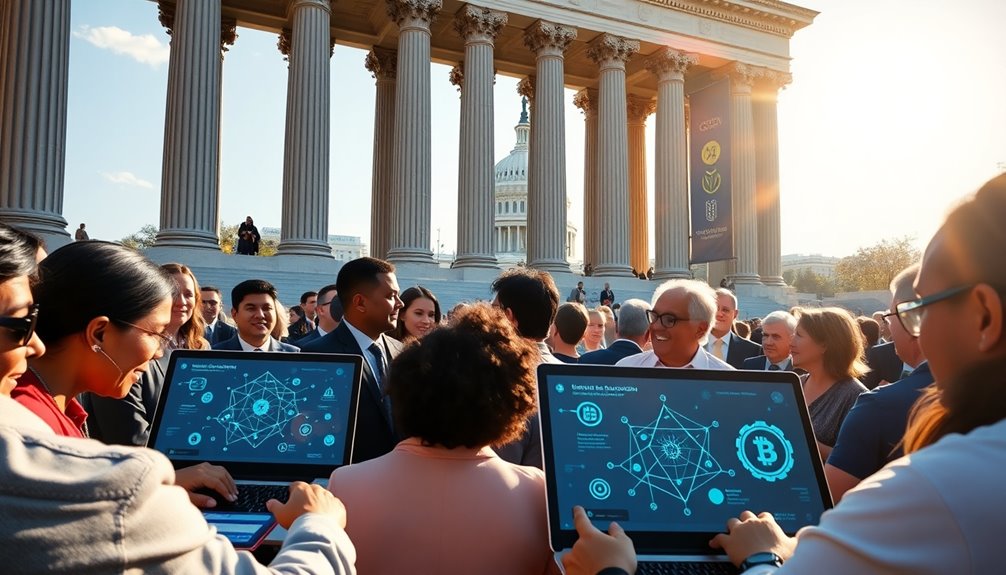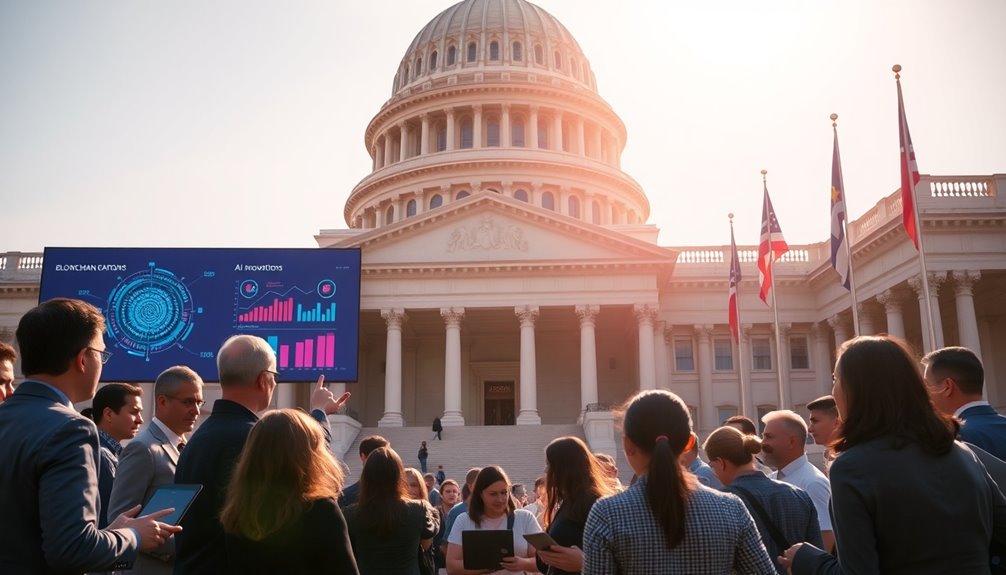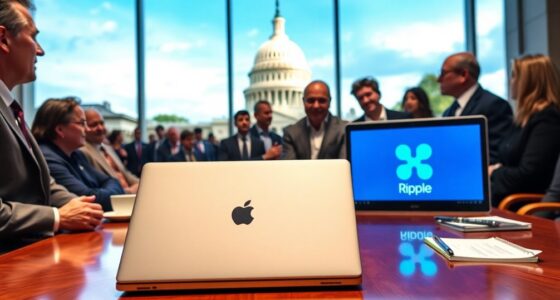Capitol Hill's commitment to AI and blockchain innovation is becoming increasingly evident. Lawmakers are pushing for more investment in research and development, while also aiming to ensure national security. This movement highlights the importance of collaboration between government, industry, and academia. As these technologies evolve, you might wonder how they will shape the future of the U.S. economy and what this means for your role in it.

Capitol Hill's growing enthusiasm for artificial intelligence (AI) and blockchain technology underscores a pivotal shift in how the U.S. government views innovation. You can see this shift in the government's commitment to sustained investment in AI research and development. By collaborating with industry leaders, academic institutions, and international partners, the government aims to foster an environment ripe for groundbreaking advancements. This collaborative spirit helps reduce barriers to AI use while ensuring national security and protecting American technology.
Capitol Hill's enthusiasm for AI and blockchain signals a transformative commitment to innovation and collaboration in technology development.
As you follow the developments, you'll notice that Congress is also focusing on AI education. Efforts to train the next generation of AI researchers through STEM initiatives are vital. By investing in education, lawmakers recognize the importance of equipping young minds with the skills necessary for future AI innovations. Furthermore, the establishment of technical standards is crucial in minimizing vulnerabilities and promoting innovation across various sectors.
Blockchain technology is gaining traction on Capitol Hill as well. By integrating blockchain with AI, the government aims to enhance trust in AI applications. Blockchain's immutable record of AI model development ensures accountability and transparency, which are essential for maintaining public trust. Companies like FICO have successfully adopted blockchain to manage their AI model development, leading to a remarkable reduction in support issues and model recalls by over 90%.
The government's advocacy for blockchain doesn't stop there; it extends to securing sensitive data within public administration. Regulatory clarity in the blockchain and crypto space is a priority, as it encourages innovation while safeguarding national interests. With the formation of a bicameral crypto committee, lawmakers are actively working on a stablecoin bill and a comprehensive regulatory framework. This initiative could pave the way for the U.S. to become a leading hub for stablecoin innovation.
AI and blockchain aren't just technological advancements; they represent significant economic opportunities. You can expect these technologies to drive trillion-dollar growth in the U.S. economy in the coming years. The potential of the crypto industry, especially with decentralized AI, positions it to become one of the top three industries, prompting optimism around regulatory reforms that could further stimulate growth.









